This website uses cookies so that we can provide you with the best user experience possible. Cookie information is stored in your browser and performs functions such as recognising you when you return to our website and helping our team to understand which sections of the website you find most interesting and useful.
Column

Dear Friends,
We’ve said farewell to a difficult year – a year that showed us how vulnerable we are, but also how science can find solutions to global challenges like the Covid-19 pandemic.
Thanks to science, we can cast a hopeful glance at 2021, looking forward to the delivery of the Covid-19 vaccines only a year after the first cases of the new virus were reported. The development of vaccines for SARS-CoV-2 against the clock has been possible because of the prior work done by scientists around the world, studying similar viruses or developing the technology that can now be used in new vaccines and treatments. This only shows how important it is to give sustained support to science and research, for what we’re doing in these areas today can become the seed of the solutions for future challenges.
The same applies to cancer research: the more research we do, the closer we’ll get to a cure for cancer. This is why cancer research should continue to be a social and financial – and therefore a political – priority.
The year 2020 has been a productive year for scientists at the CNIO. You can take a look at all of CNIO’s contributions – which we are so proud of – here. In addition, at the Centre we’re committed to innovation and we’ll continue to strengthen ties with the pharmaceutical industry and private organisations that help us deliver our results in basic research to patients at greater speed.
Now, we’re looking forward to new talent joining the CNIO. María Casanova-Acebes, an outstanding researcher, is back from the United States to establish a new group at the CNIO: the Cancer Immunity Group. You’ll find further information about her in this newsletter. Here I’d like to welcome her and wish her the very best at the CNIO.
Dear CNIO friends, I’d like to wish you good health, happiness and success in the coming year, and that you keep walking the way of science and knowledge with us.
Maria A. Blasco
Director
CNIO science news
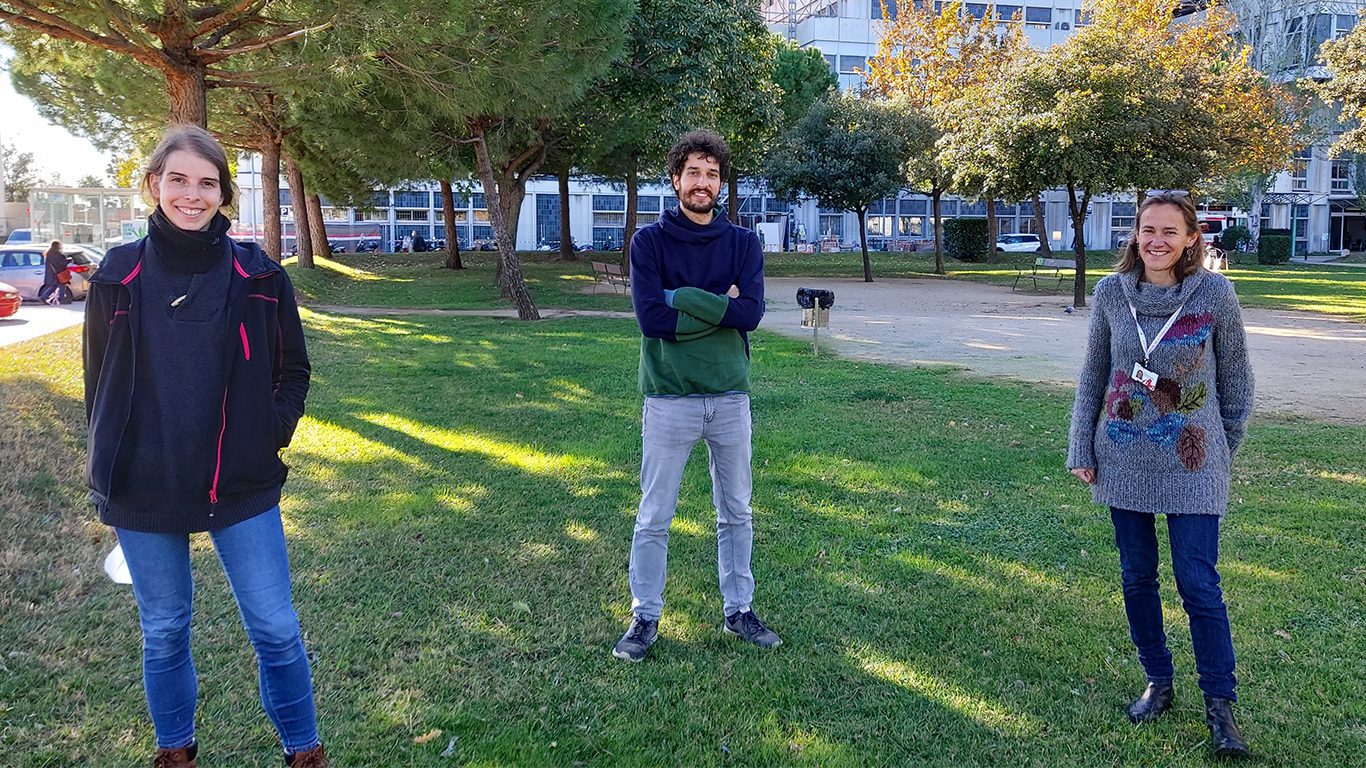 rom left to right, Clara Gómez-Aleza, Guillermo Yoldi and Eva González-Suárez. /Idibell
rom left to right, Clara Gómez-Aleza, Guillermo Yoldi and Eva González-Suárez. /Idibell
Science progresses through joint efforts. Researchers from the CNIO, Idibell, and Jules Bordet Institute have found that an osteoporosis drug could improve the efficacy of immunotherapy against breast cancer. The international team’s results were confirmed in a clinical trial.
“This strategy could turn immunologically cold breast cancers into tumours sensitive to the immune system activity,” says Eva González-Suárez, who leads the Transformation and Metastasis Group at the CNIO.
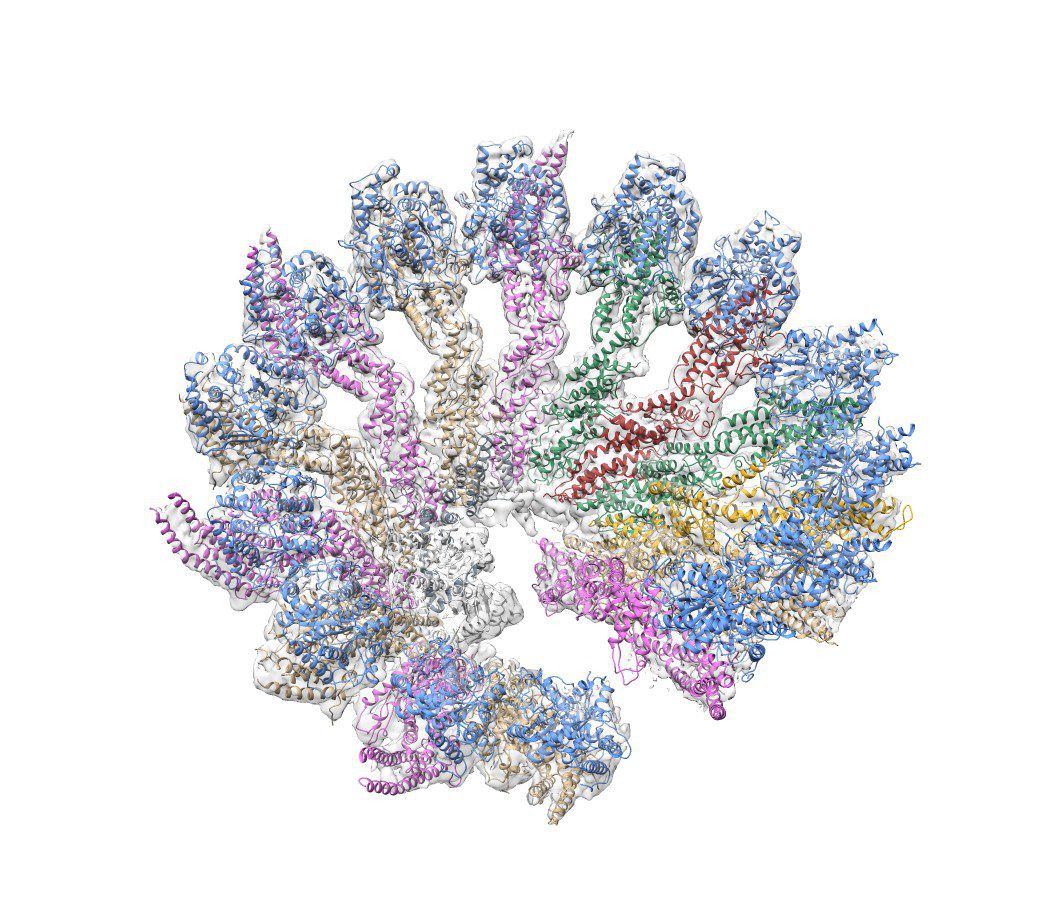 3D structure of the reconstituted human γ-tubulin ring complex. /CNIO
3D structure of the reconstituted human γ-tubulin ring complex. /CNIO
A joint research project of the CNIO and IRB Barcelona has succeeded for the first time in reconstituting human γ-tubulin rings ‘in vitro’, which is responsible for initiating microtubule formation. In addition, they have determined its 3D structure using advanced cryo-electron microscopy.
Microtubules are components of the cell skeleton essential for many important functions of cells. Mutations in some of the components of these rings cause neurodevelopmental defects such as microcephaly and have also been linked to defects in the retina. The CNIO and IRB Barcelona finding will help to understand how the mechanism of microtubule formation is regulated, to study the mutations found in patients and to better understand how they cause the disease.
Our Centre
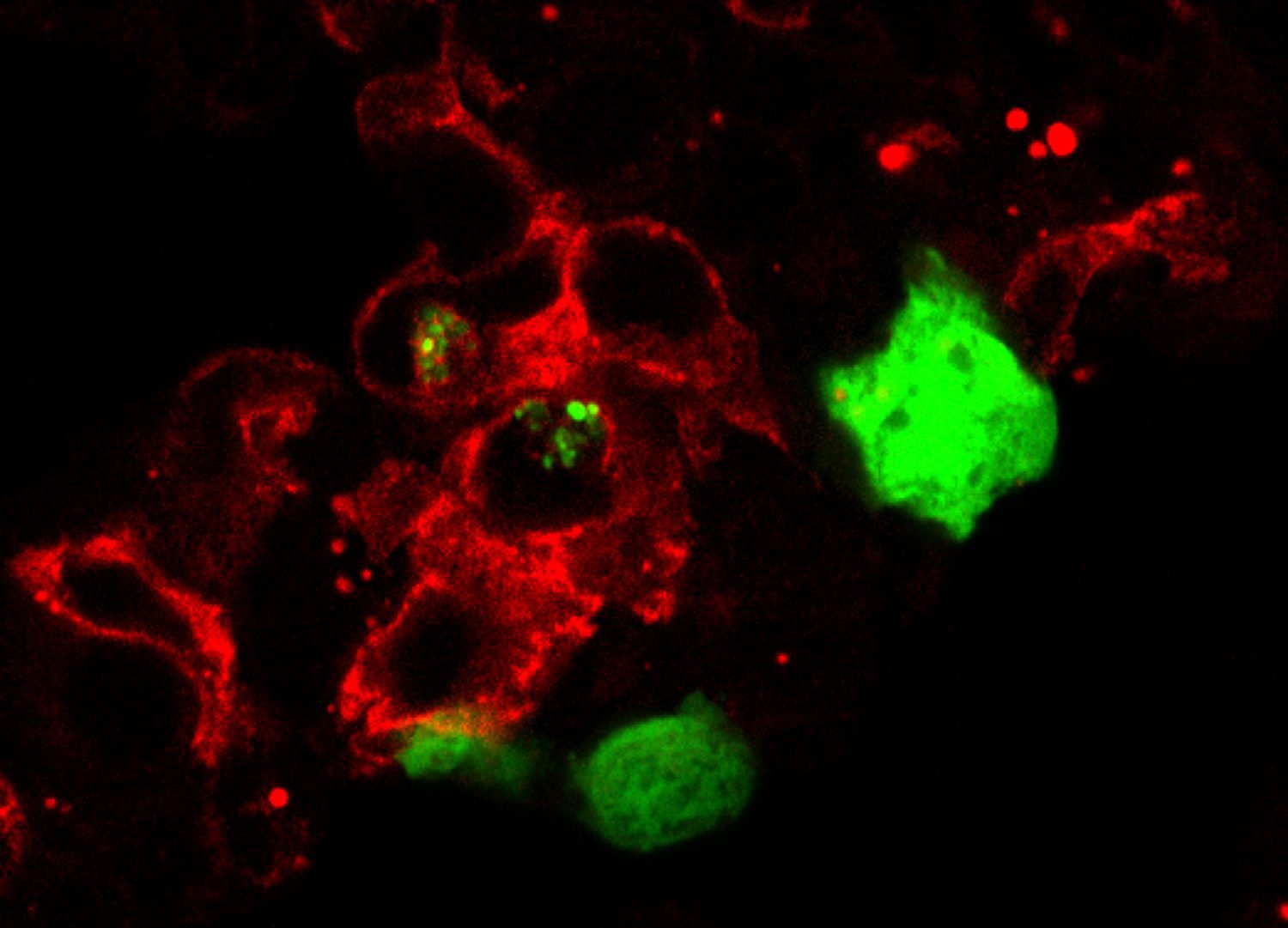 Alveolar macrophages in the lung (in red) engulfing tumour cells (in green). /Miriam Merad's Laboratory, Icahn School of Medicine at Mount Sinai (ISMMS)
Alveolar macrophages in the lung (in red) engulfing tumour cells (in green). /Miriam Merad's Laboratory, Icahn School of Medicine at Mount Sinai (ISMMS)
After working at the Icahn School of Medicine at Mount Sinai, in New York City, researcher María Casanova-Acebes is establishing the Cancer Immunity Group at the CNIO to look into immunity in cancer.
The team led by Casanova-Acebes, who is an expert in the innate immune system, will try to synchronise the internal clocks of immune cells and tumour cells in order to overcome an advantage whereby cancer manages to grow by evading the immune system. Casanova-Acebes aims to develop a novel immunotherapy strategy focusing on the innate immune system that would detect the first signs of metastases and prevent cancer chronicity. “I want to act in the early stages when the tissue is less damaged and the inactivation of the acquired immune system has not yet occurred,” she remarks.
 From left to right, and from top to bottom: Luis Paz-Ares, Maria A. Blasco, Marta Bertolaso, Fernando Valladares, Arantza Etxeberria, Antonio Diéguez, Miquel Porta, Elena Casetta, and Anna Estany. /CNIO
From left to right, and from top to bottom: Luis Paz-Ares, Maria A. Blasco, Marta Bertolaso, Fernando Valladares, Arantza Etxeberria, Antonio Diéguez, Miquel Porta, Elena Casetta, and Anna Estany. /CNIO
Do we really understand cancer in terms of the molecular processes underlying it? Do we know how a patient’s social and environmental factors affect this understanding?
Read about the online workshop on philosophy, science and medicine organised by the CNIO in November with the support of Banco Sabadell Foundation. In the workshop, four scientists (Maria A. Blasco, Luis Paz-Ares, Miquel Porta and Fernando Valladares) and five philosophers (Arantza Etxeberria, Antonio Diéguez, Marta Bertolaso, Anna Estany and Elena Casetta) approached cancer from a scientific and philosophical perspective. They also discussed how social and environmental factors should be considered when analysing the risks for disease and to what extent biodiversity is key to human wellbeing, as it protects us from viruses and infections.
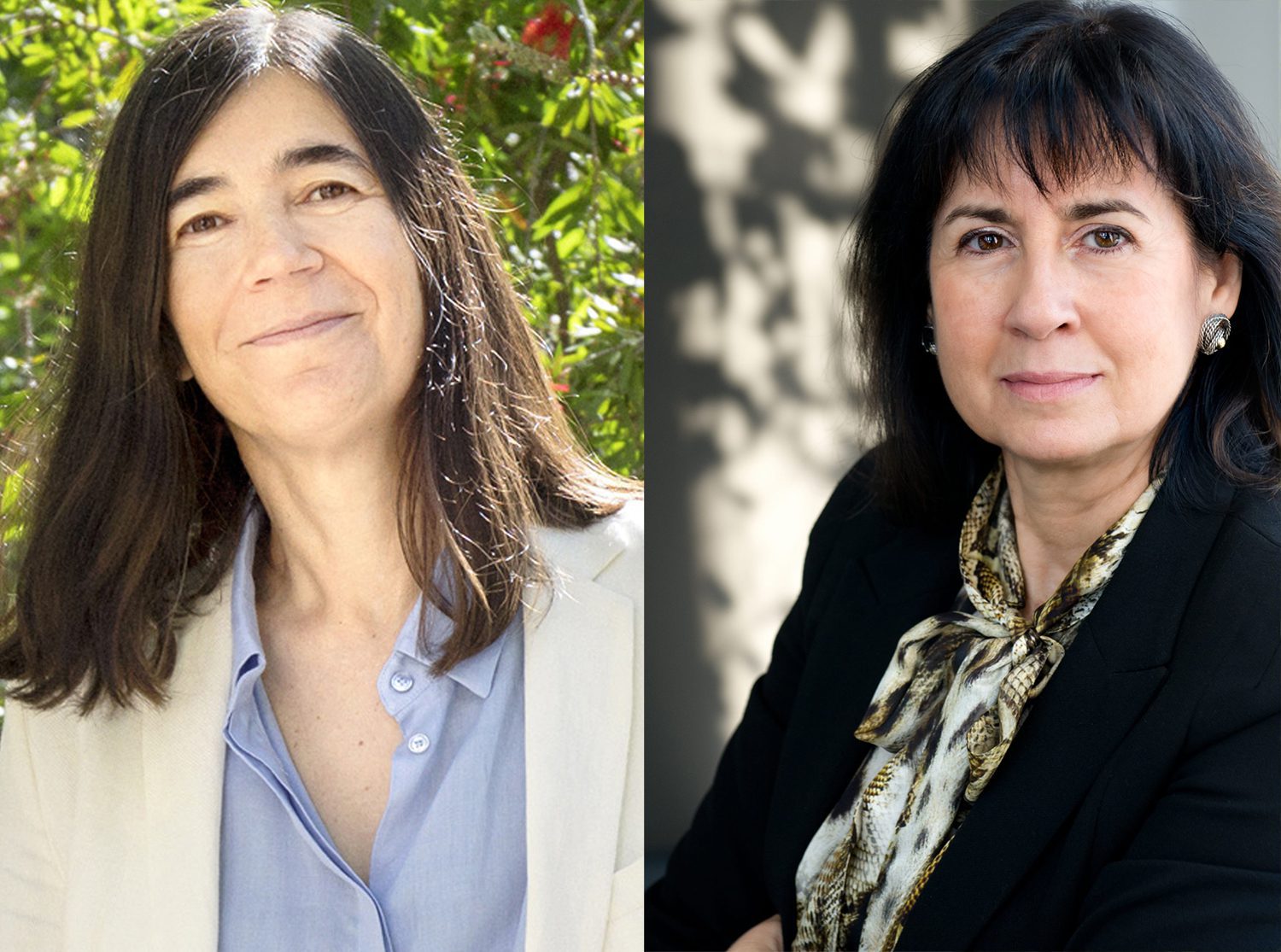 Maria A. Blasco and Fàtima Bosch (photo credits: A. Garrido, CNIO, and UAB)
Maria A. Blasco and Fàtima Bosch (photo credits: A. Garrido, CNIO, and UAB)
The findings of researchers Maria A. Blasco, from the CNIO, and Fàtima Bosch, from Universitat Autònoma de Barcelona, led to the establishment of Telomere Therapeutics, the first company the CNIO has ever held stock in. Telomere Therapeutics will look for ways of transforming research findings into treatment for pulmonary fibrosis based on gene therapy. Blasco and Bosch hope this treatment can be offered to patients who develop the disease, for which there are currently few therapeutic options.
“This is the first time that the treatment of this kind of disease will be approached from a deep understanding of the molecular mechanisms of ageing,” says Maria A. Blasco.
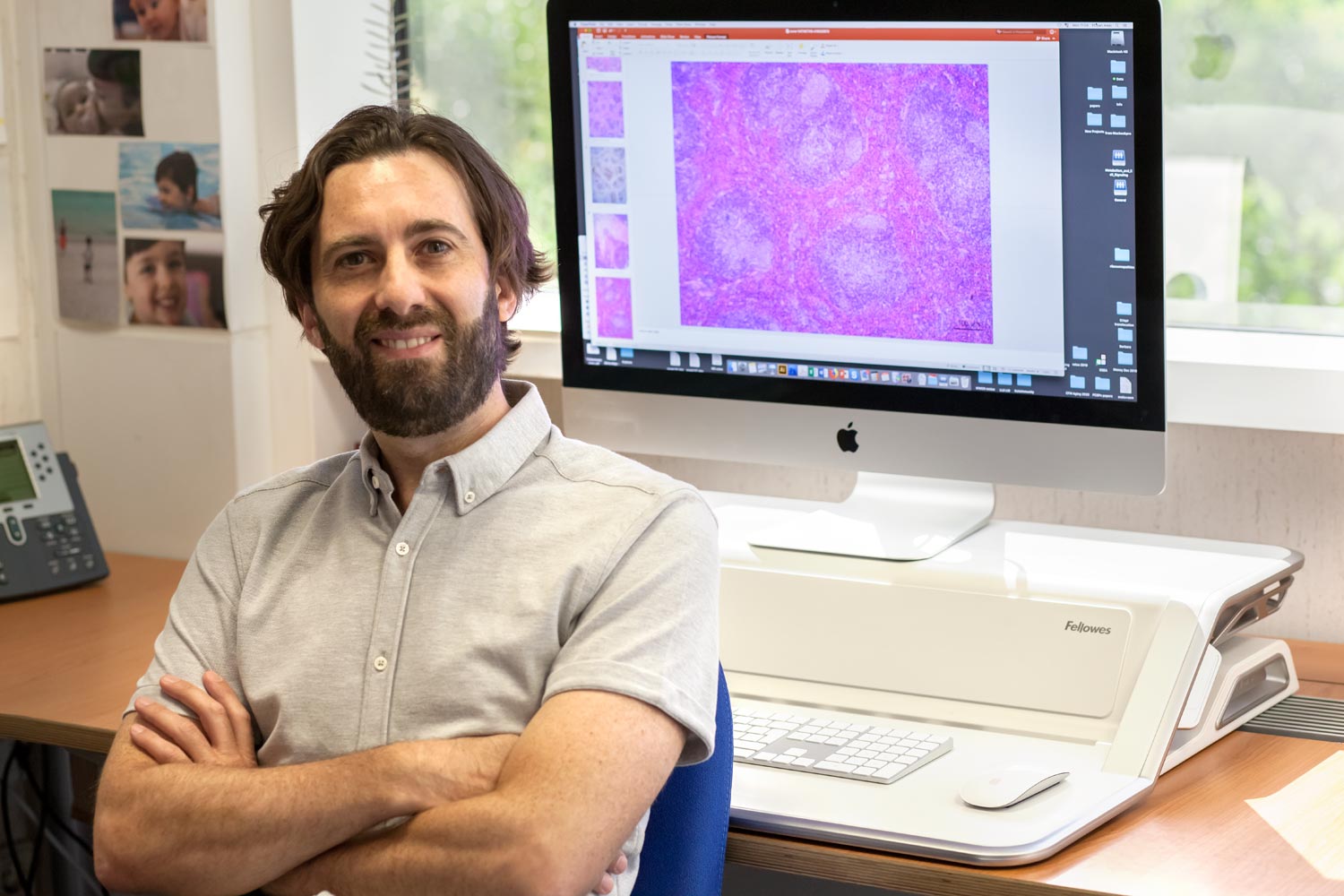 Alejo Efeyan. /CNIO
Alejo Efeyan. /CNIO
Alejo Efeyan, Head of the Metabolism and Cell Signalling Group at the CNIO, was selected as a Young Investigator by the European Molecular Biology Organization (EMBO). Efeyan will be joining an exclusive network that brings together the brightest young European researchers in the field of life sciences, and he will also receive financial assistance and advice from EMBO over the next four years to continue doing research into metabolism and cancer, diabetes and ageing.
“EMBO’s support of my research programme will back the work that is already underway and open up opportunities for future scientific interactions,” Efeyan says.
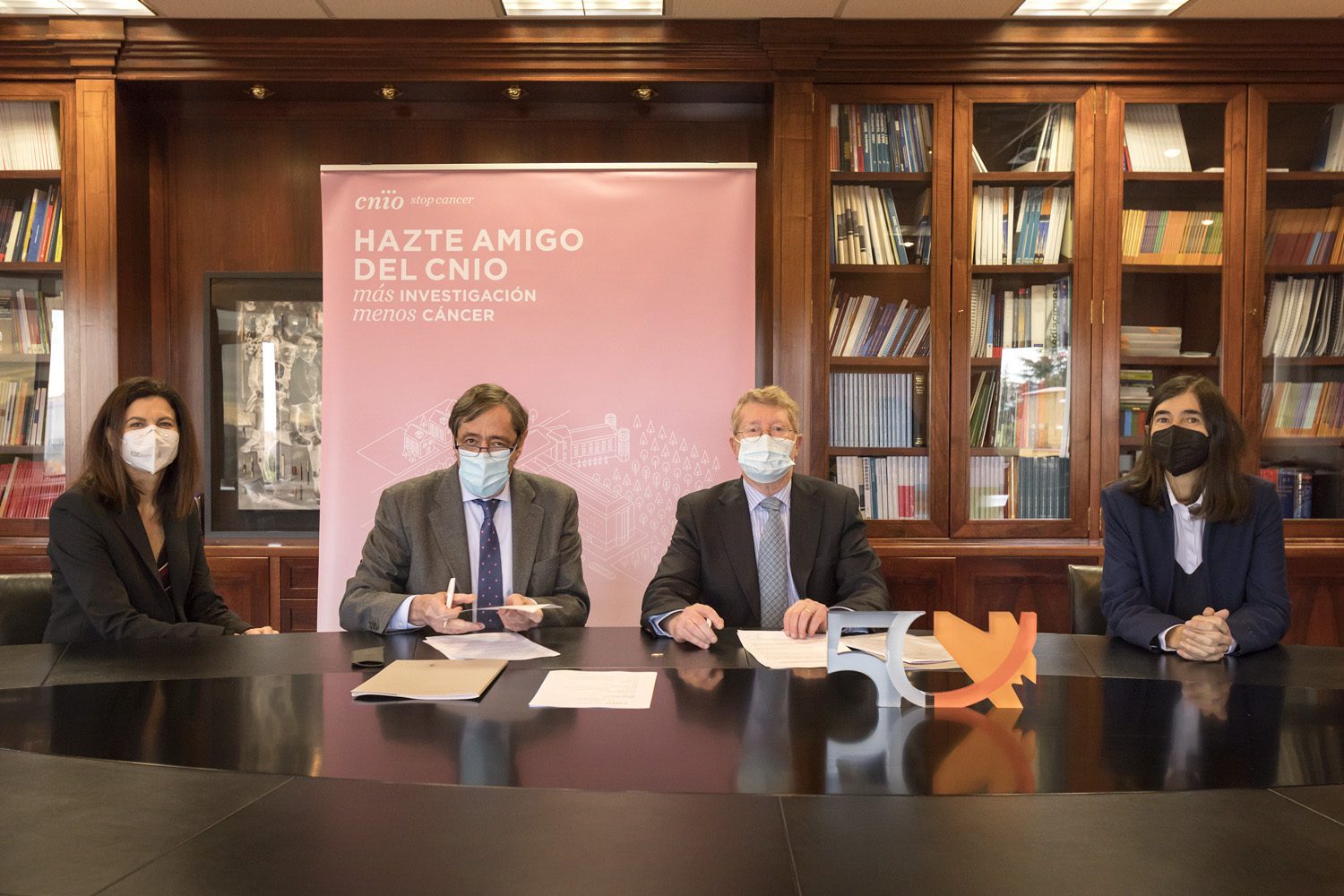 From left to right: Raquel Yotti, Director of ISCIII, Rafael Rodrigo, Secretary-General for Research and Chairman of the Board of Trustees of the CNIO, César López-Palop, Chairman of the Board of Trustees at Fundación Domingo Martínez, and Maria A. Blasco, CNIO Director. /A. Garrido, CNIO
From left to right: Raquel Yotti, Director of ISCIII, Rafael Rodrigo, Secretary-General for Research and Chairman of the Board of Trustees of the CNIO, César López-Palop, Chairman of the Board of Trustees at Fundación Domingo Martínez, and Maria A. Blasco, CNIO Director. /A. Garrido, CNIO
In the year of their 50th anniversary, Fundación Domingo Martínez has signed a cooperation agreement for a new CNIO Friends postdoctoral contract. This new collaboration strengthens CNIO’s ties to philanthropic foundations aware of the relevance of cancer research and committed to common good by supporting research talent.
The signing ceremony at the CNIO was attended by Rafael Rodrigo, Secretary-General for Research and Chairman of the Board of Trustees at CNIO; César López-Palop, Chairman of the Board of Trustees at Fundación Domingo Martínez; Maria A. Blasco, CNIO Director; and Raquel Yotti, Director of ISCIII.
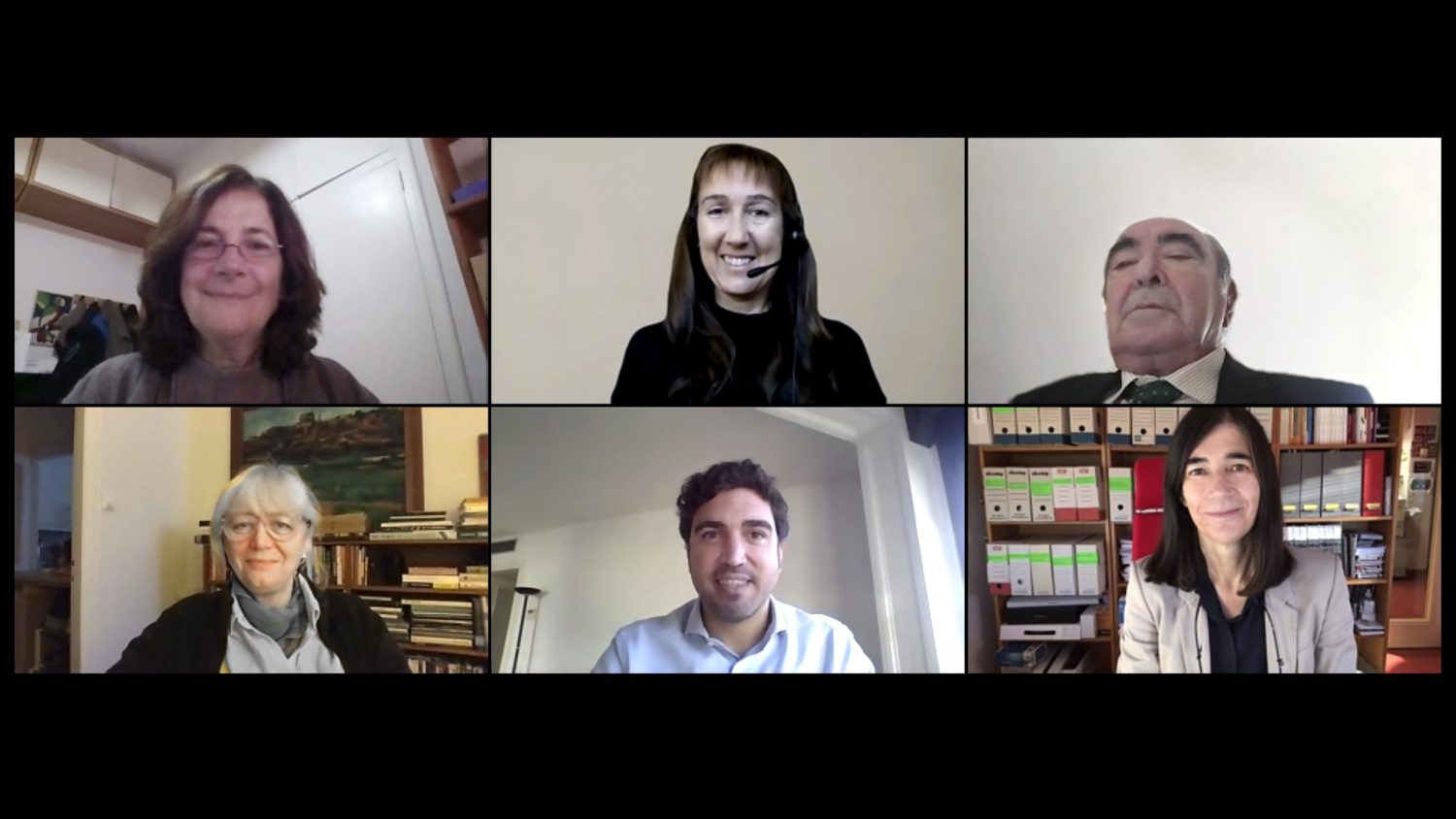 From left to right, and from top to bottom: Isabel Barthelemy, CNIO's Scientific Management Director; Susana Codina, Deputy Manager of the Jesús Serra Foundation; Federico Halpern, President of the Jesús Serra Foundation; Sonia Laín, Professor in Molecular Cancer Pharmacology at the Karolinska Institutet; Ignacio Gallardo, General Manager of the Jesús Serra Foundation; and Maria A. Blasco, CNIO Director. /CNIO
From left to right, and from top to bottom: Isabel Barthelemy, CNIO's Scientific Management Director; Susana Codina, Deputy Manager of the Jesús Serra Foundation; Federico Halpern, President of the Jesús Serra Foundation; Sonia Laín, Professor in Molecular Cancer Pharmacology at the Karolinska Institutet; Ignacio Gallardo, General Manager of the Jesús Serra Foundation; and Maria A. Blasco, CNIO Director. /CNIO
Researcher Sonia Laín, from Karolinska Institutet in Sweden, is currently on a sabbatical stay at the CNIO supported by the Jesús Serra Foundation’s Visiting Researchers Programme. Laín’s interactions with a number of CNIO research teams have made it possible for her to assess cancer drug development projects and pursue two new lines of research: KRAS mutations in cancer, with Mariano Barbacid, and the effects of some inhibitors on metabolism, with Nabil Djouder.
“It is a great honour for me to be a visiting researcher at the CNIO. It is an extraordinary place to carry out cancer research. In my opinion, the CNIO makes very efficient, sensible and fast use of resources,” Laín says.
 A moment from European Researchers’ Night at the CNIO in 2020. /A. Garrido, CNIO
A moment from European Researchers’ Night at the CNIO in 2020. /A. Garrido, CNIO
For the eighth year in a row, the CNIO celebrated the European Researchers’ Night, a Europe-wide public event that brings researchers closer to the public. This year, the event moved into a digital format and had a record number of attendees: 280 people, who talked with young researchers from the CNIO and took part in hands-on experiments from home.

As they do in December every year, predoctoral and postdoctoral researchers gathered on Lab Day to share the progress made in their research, celebrate CNIO’s achievements and discuss career prospects in the field of science.
This year, the event has been very special: it has celebrated its 10th anniversary, it was held online for the first time… and it has shown that cancer research at one of the top centres in Europe has not stopped during the Covid-19 pandemic.
 Luis Serrano and Maria A. Blasco (photo credits: Ivan Martí, CRG, and A. Garrido, CNIO).
Luis Serrano and Maria A. Blasco (photo credits: Ivan Martí, CRG, and A. Garrido, CNIO).
Appointed at the last General Meeting, Maria A. Blasco, Director of the CNIO, took office as President of SOMMa. SOMMa is the alliance that comprises the Severo Ochoa Centres of Excellence and the María de Maeztu Units of Excellence. The alliance gathers Spain’s top research centres, which rank among the world’s best research institutions.
Over the past few years, SOMMa has been very active in the field of science policy. The new President said she would “carry on working for the recognition of Spanish science as one of the political and economic priorities of this country.”
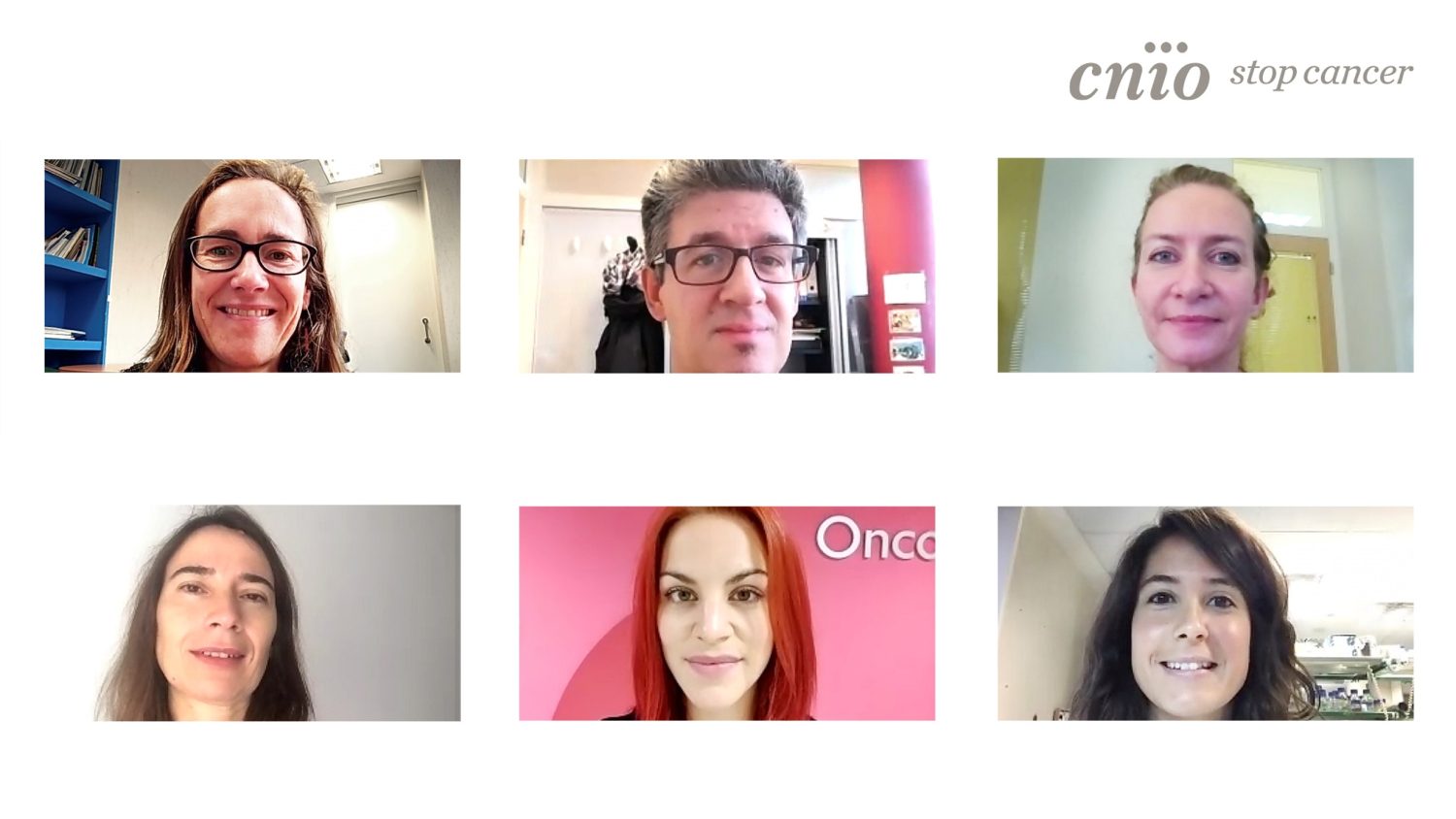 From left to right and from top to bottom: Eva González-Suárez, Francisco de Luna, Barbara Oldrini, Patricia González Santamaría, Sara García and Sofía Cabezudo. /CNIO
From left to right and from top to bottom: Eva González-Suárez, Francisco de Luna, Barbara Oldrini, Patricia González Santamaría, Sara García and Sofía Cabezudo. /CNIO
Translating research findings into clinical practice for patients’ benefit is a complex process that takes time and effort. Scientists need to know this and should have the resources to go through this process successfully.
The CNIO and Fundación Banco Santander are working together to promote the transfer of scientific knowledge to society by means of an IE University programme. Since it was launched, the programme has been completed by 40 scientists from the CNIO. The researchers who are joining the programme now are Barbara Oldrini, Sofía Cabezudo, Sara García, Francisco de Luna, Patricia González Santamaría, and Eva González Suárez.
 A moment of the Science and Innovation Week at the CNIO, 2020. /CNIO
A moment of the Science and Innovation Week at the CNIO, 2020. /CNIO
In November 2020, the CNIO participated in the Science and Innovation Week under the motto “Todos y todas desarmando al cancer” (‘Everyone Unravelling Cancer’). The event was held online with over 70 attendees, who took the chance to learn more about a top research institution like the CNIO.
Entrevista
María Casanova-Acebes: “We’re getting closer to preventing the chronicity of cancer”
 María Casanova-Acebes. /CNIO
María Casanova-Acebes. /CNIO
We interview María Casanova-Acebes, who is joining the CNIO as Head of the new Cancer Immunity Group.
What is the potential of the immune system to treat cancer? What will you and your team work on at the CNIO?
The immune system identifies everything that is foreign in our body. It’s like an alert system. In the past few years, however, we’ve learnt that, as it progresses, cancer manipulates the immune system to its own benefit. If we can manage to revert this manipulation, we’ll enable the immune system to fight and destroy cancer cells.
As a team, we want to understand when exactly innate immune system dysfunction occurs, so that we can repair it and prevent cancer from progressing – i.e., stop cancer before it becomes chronic. We’ll focus on the innate immune system because it is the innate immune system the one that educates and instructs T-cell responses; T-cells are the cells in the adaptive immune system that destroy cancer cells. We’re also interested in understanding the physiological mechanisms whereby tissues transform and evade the immune system. To this end, we’ll study how circadian rhythms (cycles governed by light and dark) are used by cancer cells to grow.
How close to patients will you be?
Definitely very close. By working with the renowned immunologist Dr. Miriam Merad at the Icahn School of Medicine at Mount Sinai, I’ve learnt that we as scientists must build bridges between basic and clinical research. Basic research is essential to identify targets for the development of cancer drugs and treatments. Only by establishing an active dialogue with clinicians, we will be able to find the cure for cancer. Indeed, I strongly believe that in all of our lab meetings we should invite clinicians to discuss our results.
Do you believe we’ll be able to prevent cancer chronicity in the future?
Certainly. As a matter of fact, we’re getting closer to preventing cancer chronicity. So far, we’ve managed to considerably shorten cancer detection time with the use of several biomarkers However, while most of the strategies in cancer detection have focused on tumour-derived signals that are drained into the blood, my goal is to identify novel biomarkers of the immune system in situ, in the proper place where cancer is being originated. By doing so, I aim to understand why innate cells stop recognising tumour cells and fail to stop cancer progression.
Profile
Luis Enjuanes
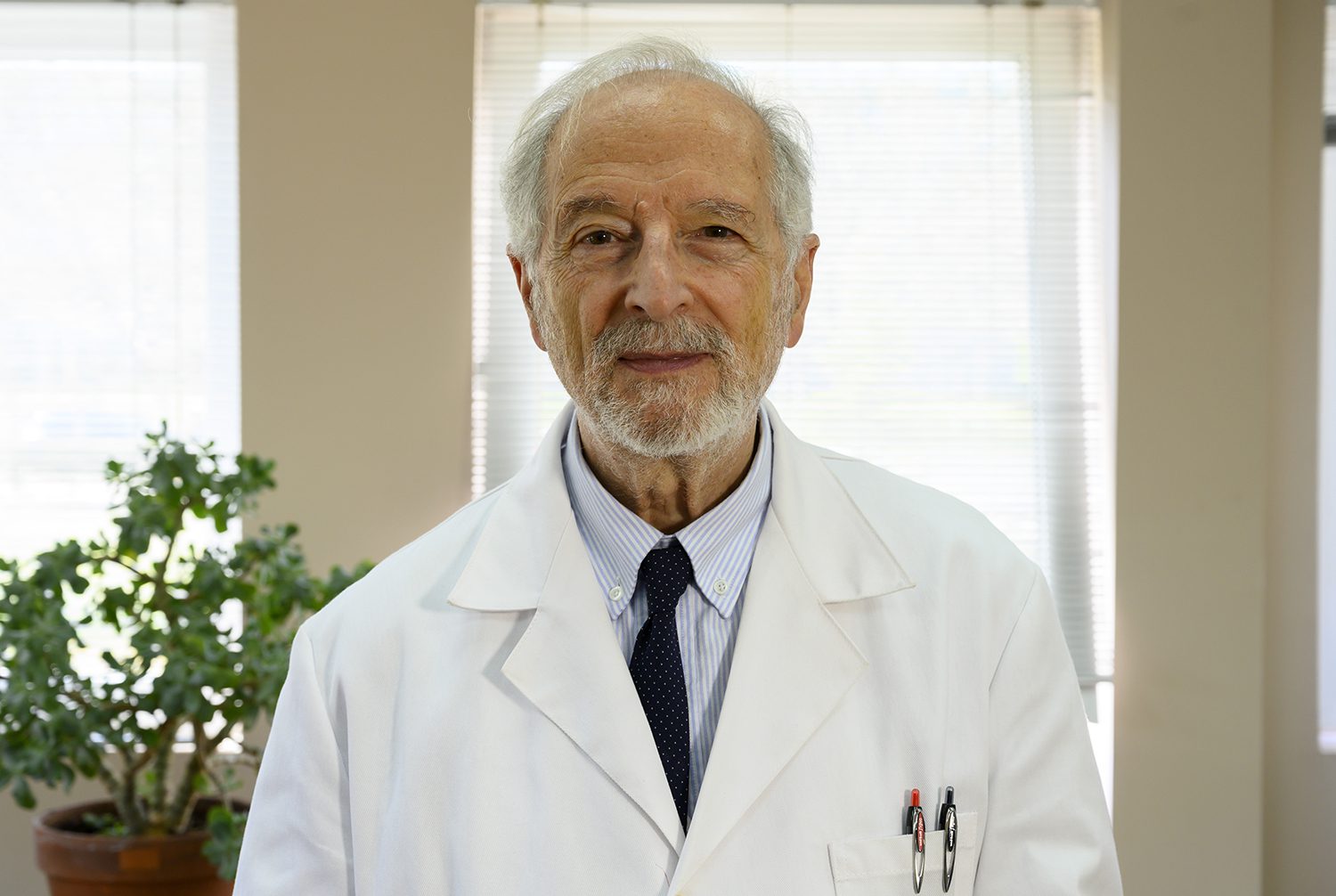 Photo: César Hernández/Comunicación CSIC
Photo: César Hernández/Comunicación CSIC
On December 18, Luis Enjuanes, Co-director with Isabel Sola of the Coronavirus Laboratory of the Spanish National Centre for Biotechnology, which forms part of CSIC (CNB-CSIC), conducted a featured seminar on protection against human coronaviruses.
Luis Enjuanes has been studying coronaviruses for more than 15 years. Currently, he is studying their virulence mechanisms and virus-host interactions. Since January 2020, his team have been working on the development of a vaccine for SARS-CoV-2, using the same technique they used in previous SARS-CoV and MERS outbreaks, in 2002 and 2012, respectively.
The Coronavirus Laboratory at the CNB was a global pioneer in 2000 when its researchers isolated the genome of a coronavirus. The DNA could then be modified, something that only a few laboratories achieved. The goal of the team headed by Enjuanes is to locate the genes for virulence in order to delete them through DNA modification. The viruses lacking these specific genes are attenuated, and could be used to develop a vaccine. The weakened version of the virus will get the immune system in the person receiving this vaccine ready to produce specific antibodies and so fight the actual pathogen. This is how Enjuanes and his team are working to obtain a vaccine for the new coronavirus. They hope to have a prototype soon.
Enjuanes has published more than 235 papers in international scientific journals and written 58 book chapters. He was a Fogarty visiting researcher at the US National Institutes of Health (NIH) and a visiting scientist at the Cancer Research Centre (FCRC) of the NIH. He was the recipient of the Research Merit Award. He is a Professor of Virology at the Autonomous University of Madrid and the Pasteur Institute in Paris. He was named Distinguished Senior Virologist by the Spanish Society of Virology. He is a member of the Royal Academy of Exact, Physical and Natural Sciences, and a member of the American Society for Microbiology. He is an expert consultant for the NIH and the World Health Organisation (WHO).
Distinguished Seminars
06.11.2020
Fatima Mechta-Grigoriou
Institute Curie (France)
Role of fibroblast heterogeneity in metastatic spread and immunotherapy resistance in cancer
20.11.2020
Samra Turajlic
Francis Crick Institute (United Kingdom)
'Understanding cancer evolution through studies in renal cancer and melanoma'
27.11.2020
Nicola Aceto
University of Basel (Switzerland)
'Biology and Vulnerabilities of Circulating Tumor Cells'
11.12.2020
Caroline Dive
CRUK Manchester Institute Cancer Biomarker Centre (United Kingdom)
'Liquid biopsies to support better outcomes for lung cancer patients'
18.12.2020
Luis Enjuanes
National Centre for Biotechnolgy (CNB-CSIC) (Spain)
'Human coronaviruses: pathogenesis and protection'
Women in Science Office Seminars
12.11.2020
Pepa Bueno
Journalist and radio presenter
'Journalism and feminism' [video, in Spanish]
